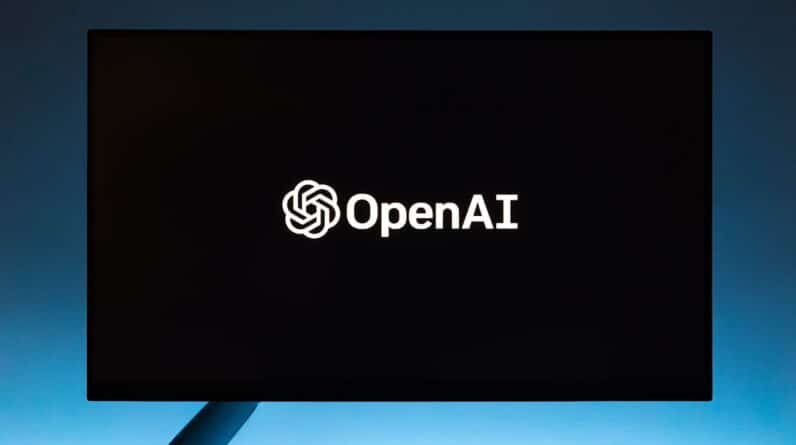As you navigate the ever-evolving landscape of education, you may have noticed the increasing presence of artificial intelligence (AI) in e-learning environments. This technological advancement is not merely a trend; it represents a significant shift in how educational content is delivered and experienced. AI has the potential to transform traditional learning paradigms, making education more accessible, engaging, and tailored to individual needs.
By harnessing the power of AI, educators and institutions can create dynamic learning experiences that cater to diverse student populations. In recent years, the integration of AI into e-learning platforms has gained momentum, driven by the need for innovative solutions that address the challenges of modern education. From personalized learning pathways to intelligent tutoring systems, AI is reshaping how you interact with educational content.
As you delve deeper into this topic, you will discover the myriad ways in which AI is enhancing the learning experience, providing insights into its role in personalized learning, assessment, curriculum design, and more.
Key Takeaways
- AI in e-learning is revolutionizing the way students learn and educators teach, offering personalized learning experiences and efficient administrative processes.
- Artificial Intelligence plays a crucial role in personalized learning by analyzing student data and behavior to tailor educational content and activities to individual needs and preferences.
- AI has a significant impact on student assessment and feedback by providing real-time insights into student performance and offering personalized feedback to enhance learning outcomes.
- In curriculum design and content creation, AI helps educators develop customized learning materials and adapt the curriculum to meet the diverse needs of students.
- The integration of AI in educational administration and management streamlines administrative tasks, enhances decision-making processes, and improves resource allocation in educational institutions.
The Role of Artificial Intelligence in Personalized Learning
One of the most significant contributions of AI to e-learning is its ability to facilitate personalized learning experiences. As you engage with various educational platforms, you may find that AI algorithms analyze your learning habits, preferences, and performance data to tailor content specifically for you. This level of customization allows for a more effective learning journey, as you can progress at your own pace and focus on areas that require additional attention.
Imagine a scenario where an AI-driven system monitors your interactions with course materials and identifies patterns in your learning behavior. It can then recommend resources or activities that align with your unique needs, ensuring that you receive the support necessary to succeed. This personalized approach not only enhances your understanding of the subject matter but also fosters a sense of ownership over your learning process.
By leveraging AI, educational institutions can create a more inclusive environment that accommodates diverse learning styles and paces.
The Impact of AI on Student Assessment and Feedback

As you engage with AI-enhanced e-learning platforms, you may notice a shift in how assessments are conducted and feedback is provided. Traditional assessment methods often rely on standardized tests that may not accurately reflect your understanding or skills. However, AI offers innovative solutions that can provide real-time feedback and adaptive assessments tailored to your performance.
With AI-driven assessment tools, you can receive immediate insights into your strengths and weaknesses. For instance, if you struggle with a particular concept, the system can offer targeted exercises or resources to help you improve. This immediate feedback loop not only aids in your comprehension but also encourages a growth mindset, as you can see tangible progress over time.
Furthermore, AI can analyze trends in your performance data, allowing educators to identify areas where additional support may be needed, ultimately enhancing the overall learning experience.
AI in Curriculum Design and Content Creation
The integration of AI into curriculum design and content creation is another area where you may witness significant advancements. Traditional curriculum development often involves extensive research and collaboration among educators, which can be time-consuming and resource-intensive. However, AI can streamline this process by analyzing vast amounts of data to identify trends and gaps in existing curricula.
As you explore AI-generated content, you may find that it is not only relevant but also engaging. AI tools can curate resources from various sources, ensuring that the material is up-to-date and aligned with current educational standards. Additionally, these systems can adapt content based on your learning preferences, making it more relatable and easier to digest.
This dynamic approach to curriculum design allows for a more responsive educational environment that evolves alongside the needs of students.
The Integration of AI in Educational Administration and Management
Beyond the classroom, AI is making waves in educational administration and management. As you consider the administrative side of education, it becomes clear that AI can enhance efficiency and decision-making processes. For instance, AI-powered analytics can help institutions track enrollment trends, student performance metrics, and resource allocation more effectively.
Imagine an administrative system that utilizes AI to predict enrollment patterns based on historical data and demographic trends. This predictive capability allows institutions to allocate resources more effectively and plan for future needs. Additionally, AI can assist in streamlining administrative tasks such as scheduling, communication, and record-keeping, freeing up valuable time for educators to focus on teaching and student engagement.
By embracing AI in administration, educational institutions can create a more efficient and responsive environment that ultimately benefits both students and staff.
Ethical Considerations and Challenges of AI in E-learning

While the benefits of AI in e-learning are substantial, it is essential to address the ethical considerations and challenges that accompany its implementation. As you engage with AI-driven platforms, questions surrounding data privacy, algorithmic bias, and equity in access may arise. The collection and analysis of personal data raise concerns about how this information is used and who has access to it.
Moreover, there is a risk that AI algorithms may inadvertently perpetuate biases present in the data they are trained on. This could lead to unequal learning opportunities for certain groups of students. As you navigate this landscape, it is crucial to advocate for transparency in AI systems and ensure that ethical guidelines are established to protect users’ rights.
By addressing these challenges head-on, you can contribute to a more equitable and responsible integration of AI in education.
The Future of AI in E-learning: Opportunities and Potential Developments
Looking ahead, the future of AI in e-learning holds immense promise for further innovation and development. As technology continues to advance, you may witness even more sophisticated applications of AI that enhance the learning experience. For instance, virtual reality (VR) and augmented reality (AR) technologies could be integrated with AI to create immersive learning environments that engage students on multiple levels.
Additionally, as machine learning algorithms become more refined, personalized learning experiences will become increasingly precise. Imagine an educational platform that not only adapts content based on your performance but also anticipates your future needs based on predictive analytics. This level of foresight could revolutionize how you approach learning, making it more proactive rather than reactive.
Furthermore, as global connectivity improves, AI has the potential to bridge gaps in education across different regions and demographics. By providing access to high-quality resources and personalized support regardless of geographical location, AI can help democratize education on a global scale.
Embracing AI as a Tool for Enhancing Education
In conclusion, as you reflect on the role of artificial intelligence in e-learning, it becomes evident that this technology is not just a passing trend but a transformative force in education. From personalized learning experiences to innovative assessment methods and streamlined administrative processes, AI has the potential to enhance every aspect of the educational journey. As you embrace these advancements, it is essential to remain mindful of the ethical considerations that accompany them.
By advocating for responsible use and equitable access to AI-driven tools, you can contribute to a future where education is more inclusive and effective for all learners. Ultimately, by harnessing the power of AI as a tool for enhancing education, you are participating in a movement that seeks to empower individuals and foster lifelong learning in an increasingly complex world.
In a related article on AI Lab 360, AI in Sentiment Analysis: Understanding Emotions in Text and Speech, the potential of artificial intelligence in analyzing emotions in text and speech is explored. This technology could have significant implications for the future of education, particularly in e-learning platforms where understanding student sentiment and engagement is crucial for personalized learning experiences. By leveraging AI for sentiment analysis, educators can better tailor their teaching methods to meet the needs and preferences of individual students, ultimately enhancing the overall learning outcomes.
FAQs
What is AI in e-learning?
AI in e-learning refers to the use of artificial intelligence technologies to enhance the learning experience in online education. This can include personalized learning paths, automated grading, and intelligent tutoring systems.
How does AI benefit e-learning?
AI in e-learning can benefit students by providing personalized learning experiences, automating administrative tasks for educators, and offering real-time feedback and support. It can also help identify areas where students may be struggling and provide additional resources to support their learning.
What are some examples of AI in e-learning?
Examples of AI in e-learning include adaptive learning platforms that adjust to individual student needs, chatbots that provide instant support to learners, and automated grading systems that can provide immediate feedback to students.
What are the potential challenges of using AI in e-learning?
Challenges of using AI in e-learning can include concerns about data privacy and security, the need for ongoing maintenance and updates to AI systems, and the potential for bias in AI algorithms. Additionally, there may be resistance to the use of AI in education from some educators and students.
How is AI expected to impact the future of education?
AI is expected to have a significant impact on the future of education by providing more personalized learning experiences, automating administrative tasks, and offering new opportunities for collaboration and engagement in online learning environments.






